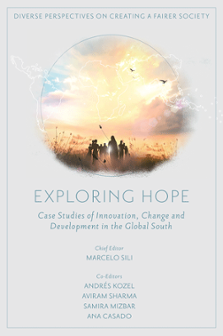Key messages
- As Nepal goes through a process of creating a new decentralized federal system of government, a CIFOR-ForestAction project used Participatory Prospective Analysis - a foresight method for co-elaborating future scenarios and developing strategies - to understand emerging issues and to bring the issues and scenarios to forest policy making at the provincial and federal levels.
- Forestry experts identified several external factors likely to impact the rights of community forest user groups under the new federal structure. These factors include national legal frameworks, macroeconomic policies, the emergence of new sub-national governments, and a changing political context. Experts also considered how the future of community forestry might be influenced by internal factors, such as the rules of community forest user groups, governance arrangements, strategies, plan implementation, conflict management systems, and relationships with local governments.
- To strengthen the rights of community forest user groups, experts recommended the following: the adoption of good governance principles in community forest user groups; networking and capacity building; a strengthening of relationships with local government and other stakeholders; the use of improved technology; forest-based enterprise development; and poverty reduction.
- Participatory Prospective Analysis was found to be a good methodological tool for effective planning, and participants thought it could improve local environmental planning. With some customization and contextual refinement, it can be adopted by community forestry groups, local government ward offices and municipalities to assist Nepal's forestry sector in its transition to a decentralized system.
Download:
DOI:
https://doi.org/10.17528/cifor/007553Puntuación Altmetric:
Dimensiones Recuento de citas:
Año de publicación
2020
Autores
Banjade, M.R.; Paudel, N.S.; Mwangi, E.
Idioma
English
Palabras clave
tenure systems, land tenure
Geográfico
Nepal



















